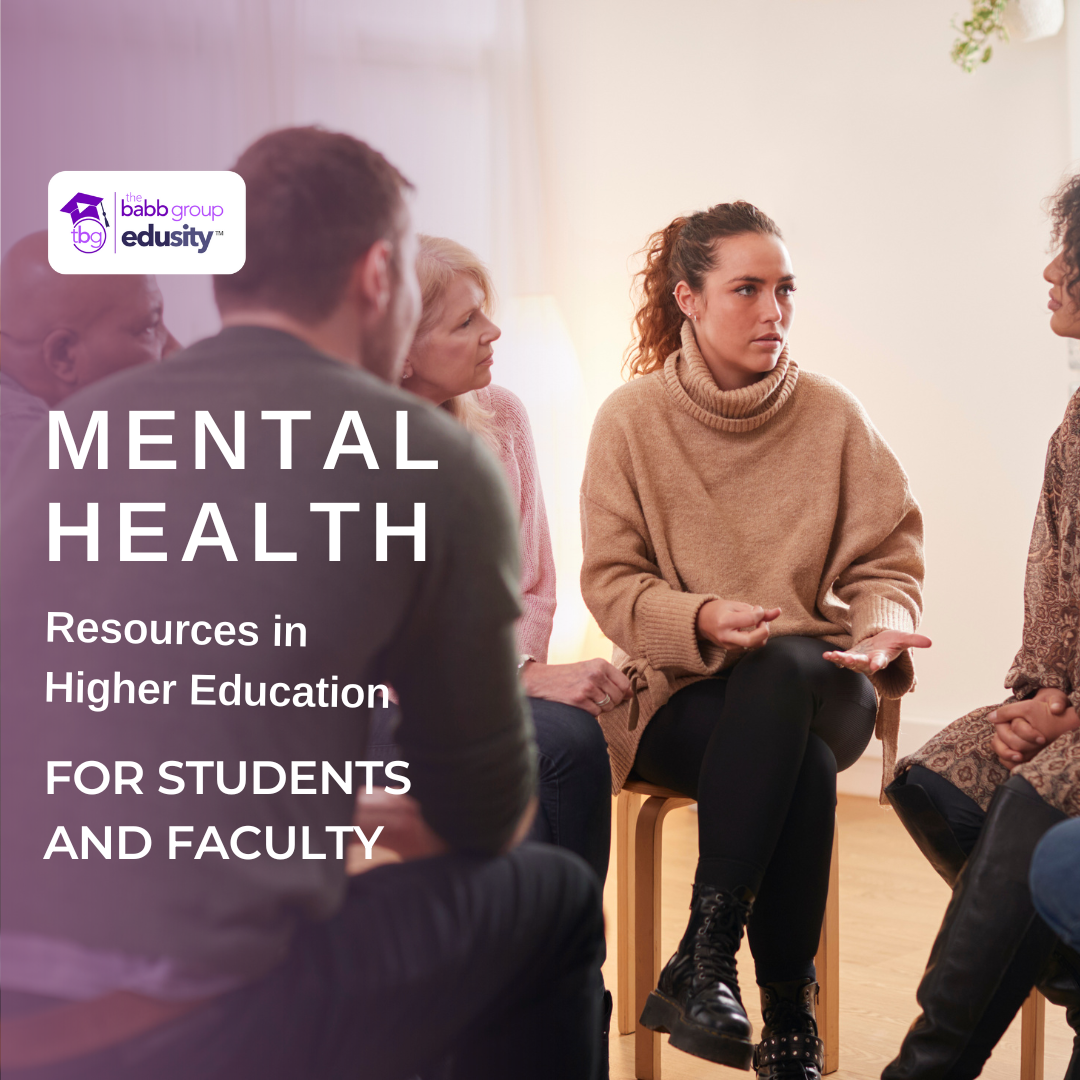Are your faculty suffering from burnout post-pandemic? Your staff are not alone. 53% of faculty surveyed by Timely Care say they considered leaving their job because of burnout, increased workload, and stress. We talked to Gina DiMartino, who is studying adjunct faculty burnout caused by the pandemic. She shares her research, introduces the concept of compassion fatigue, and offers practical solutions for colleges and universities to support faculty so they can better support their students.
Watch the full interview with Gina DiMartino here.
We know students are asking for easy access to more mental health resources. Faculty need the same resources to maintain their health and to be a well-prepared resource for students. In the Timelycare study, 3 out of 4 people surveyed say more mental health support would increase their job satisfaction. Faculty are specifically looking for more peer-to-peer support groups and virtual counseling.
DiMartino suggests that “compassion fatigue” during and after the pandemic is part of the problem for faculty. She said, “We can talk about all of the work we did and working nonstop. And what I found the number one contributing factor to the fatigue that we’re experiencing right now as educators is compassion fatigue.” She continues that it’s the role of faculty to mentor students, and it’s become an expectation and need for students that mentorship includes mental health help. “We know that students talk to us. We know that students tell us some very challenging things, and we feel like we need to do something to help them. And many faculty on the front lines of working with their students do not feel prepared to address mental health issues with their students. None of us are equipped for that. That’s not part of the training in your master’s program. There’s nothing about how to support students’ mental health after a pandemic.”
The Faculty Playbook
DiMartino suggests schools create a comprehensive Faculty Playbook. This playbook should be an accessible, user-friendly guide that outlines available mental health resources, support systems, and the steps to take when a student is in need. Equipping faculty with this tool empowers them to advocate for student well-being proactively. It’s also essential faculty and adjuncts know where to find the playbook and how to use it.
Faculty Training
To truly integrate mental health support into the fabric of higher education, mental health resources must become an integral part of faculty training programs. Faculty members are often the first point of contact for students facing challenges, and they must possess the knowledge and skills to identify signs of distress and direct students toward appropriate help.
Faculty training should cover not only the recognition of mental health issues but also communication strategies, active listening skills, and the importance of destigmatizing mental health discussions. When faculty members are well-versed in these areas, they become invaluable allies in creating a campus culture that prioritizes mental well-being.
Removing the Stigma Around Mental Health
One of the primary barriers to seeking mental health support is the lingering stigma associated with it. Just like students, faculty may hesitate to acknowledge their struggles due to fear of judgment or professional repercussions. Therefore, it’s essential to cultivate an environment where mental health and wellness are openly discussed and normalized.
Institutional leadership must take the lead in promoting a culture of empathy, understanding, and support. Workshops, awareness campaigns, and ongoing discussions emphasizing the importance of mental health for faculty and students are active steps universities can take toward improvement. As faculty members feel more comfortable discussing their own mental health, they can better empathize with and support their students.
Investing in mental health resources is an investment in the future success and fulfillment of students, faculty, and adjuncts. Recognizing the symbiotic relationship between mental health and successful learning environments is crucial. By providing faculty with accessible resources, incorporating mental health training into faculty development programs, and actively working to remove the stigma surrounding mental health discussions, higher education institutions can foster a community that prioritizes the well-being of everyone involved.
Angela Britcher
Latest posts by Angela Britcher (see all)
- Enhancing First-Year Experiences in Higher Education - August 1, 2024
- Enhancing Education with Virtual Reality: A Hands-On Approach - June 27, 2024
- Higher Education Trends: Insights from Our COO, Sheila Fry - June 13, 2024
